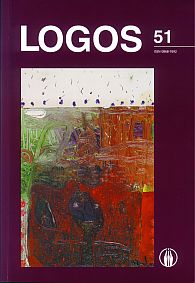TAUTIŠKOS SĄMONĖS BRANDOS GALIMYBIŲ IEŠKOJIMAS (M. K. ČIURLIONIO ATVEJO ANALIZĖ)
In Quest of Possibilities for Developing National Awareness (A Case Study of M. K.Čiurlionis)
Author(s): Rita Aleknaitė-BieliauskienėSubject(s): Cultural history
Published by: Visuomeninė organizacija »LOGOS«
Keywords: globalisation; national awareness; countryside; folk song; culture of the shift of centuries; press
Summary/Abstract: The article discloses the search for possibilities of developing national awareness in a changing world. In the context of globalisation, this is an acute and significant issue. We try to show it by underlining the peculiarities of the epoch shift in Lithuania. The epoch of Romanticism that was quite influential is stressed in the article, too. An analysis of Čiurlionis' life and aesthetic attitudes allows us to assess not only components of the native language, history and cultural cognition, which are significant for the development of national awareness, but also other stimuli like the native countryside, folk songs, the press and socio-cultural movements. The national mentality of Čiurlionis formed under the direct influence of the southern Lithuanian landscape, which would enchant, allure and stimulate the artist's sensitive nature. The second element of the development process of his national awareness was the folk songs of southern Lithuania, which he used to hear in the fields, the farming environment and at home, sung by visiting aunts or parents. The artist would transcribe and sing them himself. His national awareness awoke in approximately 1905, stimulated by the Lithuanian cultural societies existing in Warsaw and Vilnius. He experienced the great influence of the lifting of the ban on the Lithuanian press and the free Lithuanian word, which he used to read in the periodicals Viltis (Hope) and Lietuvos Žinios (Lithuanian News) that he subscribed to, as well as Lietuva (Lithuania) that his brother would post from the United States. He used to contemplate the main events of the period as reflected in the press (the Great Seimas of Lithuania, the ideas for developing a nation-state with its own culture expressed by Dr. J. Basanavičius, etc). His thinking was also subject to the influence of activities of Lithuanian cultural societies in Vilnius and St Petersburg, as well as his friendship with Sofija Kymantaitė. Having an awareness of the development of ideas of the national culture, he did his best to implement these ideas while living in Vilnius, and continuously sharing new ideas with relatives in his letters from St Petersburg. His activities were significant, and gave a sense to an important stage in developing the nation-state. Conclusions must be drawn today, as no attention is currently being paid to developing the national awareness of youth, neither through the conscious understanding of the nature and countryside of the native land, nor through an awareness of its cultural heritage. Young people have lost their understanding of the sonic expression of the ethnos, as they do not know national folk songs, which are no longer heard in public.
Journal: LOGOS - A Journal of Religion, Philosophy, Comparative Cultural Studies and Art
- Issue Year: 2007
- Issue No: 51
- Page Range: 153-162
- Page Count: 1
- Language: Lithuanian

